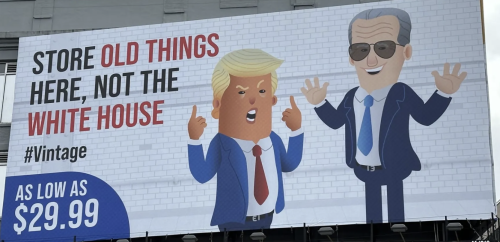“Ask a Senior”
The local farmer’s market planning board is trying to market to males, kids and olders. Of the last group, the planners recognize that the condo units that cater to 55+ often provide transportation to events. I was able to nix their ideas of providing special games for seniors, recognizing the ageism in that and explaining that the market with its music and shopping is already entertaining. Then, they suggested setting a table up to “ask a senior” a question, manned by that same population, and expecting an interesting story in response. On the one hand, that complements the knowledge base that many of the more experienced population has garnered, but it scares me that it could backfire. Yo, is this ageist?
Good work nixing the “fun games for seniors” plan! (I’m forever pointing out that activities should be planned around shared interests, not age groups.) “Ask A Senior” feels only slightly less cringe-y. White it’s true that older people have more life experience, that doesn’t make us more adept at random conversations, nor more knowledgeable on a given topic than a younger person might be.
If the goal is to lure more older shoppers to the farmers market, how about canvassing local olders and condo residents about what it would take? “We don’t need to have it fun to attend,” said one person I asked. “Put flyers at the 55+ places.” Must-haves include shade, seating, toilets, and transportation—and who doesn’t love a discount?
If the goal is to reduce ageism and build community, we know that bringing older and younger people together really works. (Take it from “Connecting generations,” a toolkit from the WHO’s Global Campaign to Combat Ageism.) How about setting up a bench for serendipitous conversations, or stories about the neighborhood? (Here are some examples). Encourage youngers and olders to take a seat. Give a prize to conversations that bridge the widest age gap. Report back!
